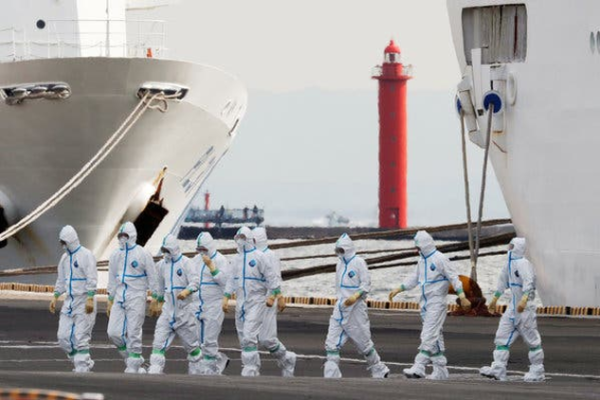The spread of the Novel Coronavirus (2019-nCoV) has impacted international trade and shipping activities, with authorities taking precautionary measures in many countries, including Australia.
China’s isolation amid the coronavirus outbreak, a rare freeze-out for such a vital economic centre, is rippling around the world. Uncertainty over the virus has disrupted global trade and supply chains, depressed asset prices and forced multinational businesses to make hard decisions with limited information.
The Australian Government is implementing enhanced risk assessments on all international vessels calling into Australia. Mandatory pre-arrival reporting of human health on board must be undertaken at least 12 hours prior to the vessels arrival into Australian territorial waters. (The Master must update authorities should the human health status on board the vessel change at any time whilst the vessel is in Australian waters).
If at any time a human health risk is reported, a biosecurity officer will conduct assessments on a case-by-case basis and work with national and local health departments to manage risk to the ill persons and other crew, seaport personnel, border staff and health professionals.
Most, if not all Australian Port Authorities are expected to implement the following additional regulations for all vessels intending to berth:
– Masters of all ships due to arrive in Australian Ports are required to declare their last 5 ports of call and confirm that they have no crew members showing symptoms of Novel coronavirus on-board.
– Where Novel coronavirus is evident or suspected, seaport personnel and shore staff will not be required to board the vessel.
– The Port Authority will delay pilotage services to vessels that have transited directly from China, but which have been at sea for less than the 14 day quarantine (self-isolation) period.
Biosecurity authorities (the Department of Agriculture) are also requesting ships agents clarify the following information, should their vessels have recently called into a port in mainland China:
– The Date the vessel departed China
– Ports called into between departing China and arriving in Australia
– Declarations as to whether any sick personnel are on board
– Declaration of the previous 5 ports of call
 Further to the above, vessels may expect heightened bio-security/quarantine measures being implemented; including:
– Australian Biosecurity Department personnel attending the vessel wearing full body protection /HAZMAT style gear;
– Stevedores wearing masks and other protective gear, and being instructed to keep distance and avoid contact with crew where possible:
– Ships agents may carry out procedures from the wharf instead of boarding the affected vessels, so as to minimise potential contamination risk;
– Seafarers aboard affected vessels may be barred from leaving the vessel.
The International Maritime Organization (IMO) has issued a circular letter to its members providing information and guidance, based on recommendations developed by the WHO, on the precautions to be taken to minimize risks. It advises Member States to urge all relevant stakeholders (companies, managers, crewing agents, etc.) to promulgate information to ensure that seafarers, passengers and others on board ships are provided with accurate and relevant updates on the coronavirus outbreak and on the measures to reduce the risk of exposure, if they are likely to be engaged on ships trading to and from ports in coronavirus-affected countries.
For further information, contact us here at Colless Young. As licensed Customs Brokers and International Freight Forwarders, we offer you correct, professional advice on all your import and exports, including information on shipping, transport and biosecurity regulations. We handle cargo through all major Australian ports.

